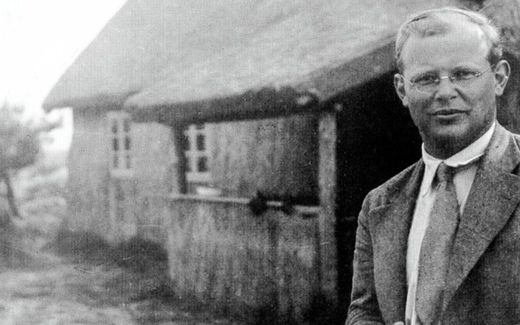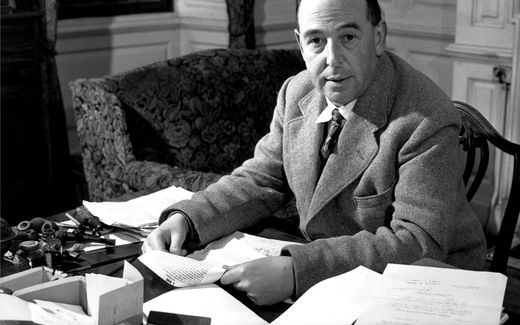Tim Keller: Christian faith for atheist and doubter
15-10-2022
Christian Life
Maarten Stolk, RD

Tim Keller. Photo Redeemer City to City
Christian Life
Tim Keller (72) is convinced of the truth of the Bible and the reasonableness of the Christian faith. The New York-based preacher, therefore, constantly engages with non-Christians and doubting believers. But some say he goes too far in doing so.
ler's books have been on all top 10 lists in the Christian part of the Netherlands for years. Also, in the Reformed churches, books like "The Reason for God" and "Counterfeit Gods: The Empty Promises of Money, Sex, and Power, and the Only Hope that Matters" are doing well. So well that Dutch elder and columnist Laurens van der Tang sounded the alarm this spring in De Wachter Sions, the bulletin of a Dutch Reformed denomination in the Netherlands. "The question is whether this can be seen as a positive development," he noted cautiously. Instead, he maintains a "critical" distance from Keller and other Christian writers, such as Dietrich Bonhoeffer and C. S. Lewis, whom he refers to as the "Big Three."
"The Bible tells us that the human heart is an "idol-factory." *From "Counterfeit Gods"*
Van der Tang feels that Reformation Christians can certainly learn things from these writers, but the balance still tips the other way for him. Keller would be largely silent on the death state of man, speak little about the need for conversion, give room to theistic evolution and be open to modern cultural expressions, such as sports, movies and music. "Critical distancing is in order," he said.
Best story
Anyone who hears Keller's sermons and reads his books will notice how much effort the American preacher puts into articulating the message of the Bible in a way that people today understand. He takes their questions and objections seriously. Keller shows that the Bible has the best "story" with all kinds of theological and philosophical arguments. That characterises Keller's apologetic work, of which "The Reason for God" has become best known. The book has sometimes been compared to Lewis' "Mere Christianity".
It is possible to hold a sound doctrine and yet be marked by clueless orthodoxy, which results when doctrines are expounded as in a theology class but are not brought together to penetrate people's hearts, so they experience conviction of sin and the beauty of grace. *From "Centre Church: Doing Balanced, Gospel-Centered Ministry in Your City"*
To make the Christian faith relevant to contemporary people, Keller uses terms that relate to the lives of his postmodern audience. The concept of sin then consists primarily of false identity, idolatry or lostness. The breaking of God's law and the Fall in Adam the state in which people naturally find themselves are less highlighted.
Keller also adapts to his target audience when he speaks about judgement and hell. He often uses a Lewis image: God does not send anyone to hell, but man who rejects Him chooses to be there himself. He is to blame for the punishment and will also never ask to leave hell.
The Biblical picture is that sin separates us from the presence of God, which is the source of all joy and indeed of all love, wisdom, or good things of any sort. Since we were originally created for God's immediate presence, only before His face will we thrive, flourish, and achieve our highest potential. If we were to lose his presence totally, that would be hell — the loss of our capability for giving or receiving love or joy. (…) Hell then is the trajectory of a soul, living a self-absorbed, self-centred life, going on and on forever." *From "The Reason for God: Belief in an Age of Skepticism"*
Keller assumes that God may have used evolutionary processes to create human life. He wants to hold to the Fall as a historical fact and to Adam and Eve as people who actually existed. Still, it remains unclear exactly how he interprets this.
Keller's attempts to reach postmodern people lead to an open attitude to culture. He quotes almost carelessly from modern films, music or literature in sermons and books. Reformers and Puritans like Calvin and Owen are joined by Russell, Kafka, Sartre and Madonna.
The God of the Bible says, as it were, "I am the poor on your step. Your attitude toward them reveals what your true attitude is toward me." A life poured out in doing justice for the poor is the inevitable sign of any real, true gospel faith. *From "Generous Justice: How God's Grace Makes Us Just"*
By the way, that does not mean that Keller wants to adapt the Gospel to the surrounding culture. "Every culture has certain points that the Gospel agrees with and points that the Gospel contradicts," he argues. "If you get those clear for yourself, you can convince people of the truth of the Gospel."
Catechism
In books where Keller focuses exclusively on Christians, he sometimes puts different, more classically Reformed emphases. For example, in his explanation of Romans 7:24-25 ("Wretched man that I am! Who will deliver me from this body of death? Thanks be to God through Jesus Christ our Lord"), he notes that in "ourselves there is no hope for our salvation or obedience. Everything we are and everything we have done deserves judgement. For our salvation, we can only look to God's Son, Who died on the cross for us."
The promises of Christmas cannot be discerned unless you first admit you can't save yourself or even know yourself without the light of his unmerited grace in your life. *From "Hidden Christmas: the surprising truth behind the birth of Christ"*
The same goes for his "New City Catechism" (NCC), published in 2012. The 52 questions and answers are based on catechisms from the time of the Reformation: Calvin's Geneva Catechism, the Shorter and Larger Catechisms of Westminster and the Heidelberg Catechism. For example, in the NCC, question and answer 18 reads, "Will God allow our disobedience and idolatry to go unpunished? Answer: No, every sin is against the sovereignty, holiness, and goodness of God, and against his righteous law, and God is righteously angry with our sins and will punish them in his just judgment both in this life and in the life to come."
Who is Tim Keller?
Timothy J. Keller, born on 23 September 1950, grows up in a church-going family in Lehigh Valley, in the US state of Pennsylvania. His family, who emigrated to America from Germany in the 18th century, is Lutheran. Keller studies theology at Bucknell University and Gordon-Conwell Theological Seminary and receives his PhD from Westminster Theological Seminary in 1981. While studying theology, he meets his future wife, Kathy, who introduces him to American revivalist preacher Jonathan Edwards and British apologist C. S. Lewis, two authors who influence him to this day.
Keller becomes a pastor in a small congregation in rural Virginia. It belongs to the Presbyterian Church in America (PCA), an orthodox Reformed denomination in the United States. Its doctrine is based on the Westminster Confession. A few years later, he becomes a professor of practical theology at Westminster Theological Seminary and has the opportunity to develop his theological vision of being a church in a modern world. Keller himself traces his openness to what is now called public theology to the Dutch theologian Herman Bavinck.
In 1989, at the request of the PCA, Keller starts a new congregation in the heart of New York (Manhattan): Redeemer Presbyterian Church. The congregation now has more than 5,000 weekly visitors.
Keller starts Redeemer City to City, an organisation that equips church planters, in 2001. The network helps plant at least 978 churches worldwide. In 2007, Keller and his friend D. A. Carson found The Gospel Coalition (TGC). This organisation has grown into an international platform for evangelical Christians.
Keller writes dozens of books, such as "The Reason for God", "The prodigal God", "Counterfeit Gods", "Generous Justice", and "Center Church".
Keller announced in 2020 that he is suffering from an aggressive form of pancreatic cancer. He is currently undergoing treatment.
Tim and Kathy Keller have three sons. One of them, Michael, is also a preacher. He finishes his PhD at the Free University in Amsterdam in 2018 on a computer study of the words American revivalist preacher Jonathan Edwards uses in sermons.
Keller believes that the church in Western culture today is undergoing a holiness crisis. "The more the culture around us becomes post- and anti-Christian, the more we will find church members in our midst who, while under resounding preaching, nevertheless hold half-heathen views about God, truth and human nature, and use sex, money and power in very worldly ways."
Righteousness
Keller thus argues that people are saved by faith and grace alone and that faith must bear fruit. "True grace leads to life sanctification and justice," he writes in "Center Church", a book that summarises his theology and vision for society. Keller is looking for a church that is both orthodox and social. Especially in his book "Generous Justice", he discusses the importance of "doing justice". According to him, this should not be left to the "progressive mainstream" of the church. The pastor said that service to the poor and needy flows precisely from the Bible. "For when the Spirit enables us to understand what Christ has done for us, the result is a life poured out in deeds of justice and compassion for the poor." Acts of mercy and justice, Keller believes, must be done out of love and not merely as a means to an end with evangelisation as the goal.
"The Big Three"
The "Big Three", they are sometimes called. Dietrich Bonhoeffer, C.S. Lewis and Tim Keller are well-known and popular theological writers in the Christian world.
However, in pietistic Reformed circles, their works are not undisputed. The Dutch columnist and elder Laurens van der Tang writes a critical article on the "Big Three" in the church bulletin of the Reformed Church in the Netherlands and America (RCNA). He concludes that "distancing is appropriate" and that these "authors cannot replace theologians from the Reformation or the Dutch Second Reformation."
Also, the Dutch Rev. A. Schreuder writes that "whoever reads the works of the Big Three misses the ultimate point of the personal appropriation of salvation."
Who were the "Big Three"? This series sheds light on their work and the question of how we should look at them.
This is the third part of a triptych about three remarkable post-war theologians Dietrich Bonhoeffer, C.S. Lewis and Tim Keller
Related Articles





